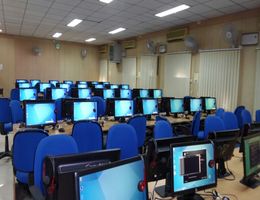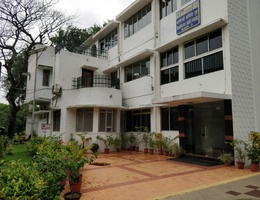Overview
Publications
Recruitment
Intranet
A 3-days Skill Development Programme on Inland Fisheries Management sponsored by NFDB, Hyderabad was executed by ICAR-CIFRI, Barrackpore for the downtrodden farmers of remote islands viz., Amtoli and Kachukhali, Sundarvans, during 06-08 Feb, 2020 where more than 250 participants took active part. Inaugurating the programme, Dr. B. K. Das, Director, ICAR-CIFRI invoked the farmers with knowledge driven technological interventions in managing inland open water resources available at Sundarvans. While interacting with the farmers, he emphasized on the involvement of them by forming SHGs/Clusters so as to make wise-use of the resources for betterment of their livelihood. These islands - Amtoli and Kachukhali are blessed with innumerous freshwater canals with huge potentials which could be tapped scientifically opting good management practices coupled with technology supports. As CIFRI has already been involved with disseminating technology on canal fisheries development in other islands also at Sundarvans, which could be referred to in these islands also. In these islands, like other areas, every hose hold has been possessing either one or more pond systems which could be explored scientifically. The sediment and water quality of these water bodies were sampled and tested towards productivity enhancement of these ecosystems. During the training periods, emphasis has also been given on small indigenous fish species, their culture practices, food values for human health to support hidden hunger as well as hidden harvest .Besides, the estuarine ecosystem also to be harnessed for fisheries with suitable gears giving scope of providing niches for other juveniles to survive for sustainability. The proper use of culture-based fisheries to be adopted for development of canal fisheries would be the viable options to develop these derelict water bodies – Dr. Das added. Dr. A. K. Das, In-charge, Extension & Training Cell elaborated the importance of fish farming along with other agriculture practices incorporating paddy-cum fish culture on community basisi, homestead water bodies for economic growth and livelihood support in this sector. He urged the members of WSHG to come forward by involving them actively in fish farming, farming of small indigenous fishes and ornamental fish husbandry to improve nutritional security to rural people. This sort of on-field programs would be of immense help in strengthening knowledge and put forward for capacity building to the rural farming community in a modest way. The overall program was well documented by Mr. Sujit Chowdhury and Mr. M. Roy under the need-based intervention and guidance of Dr. B. K. Das, Director, ICAR-CIFRI.












